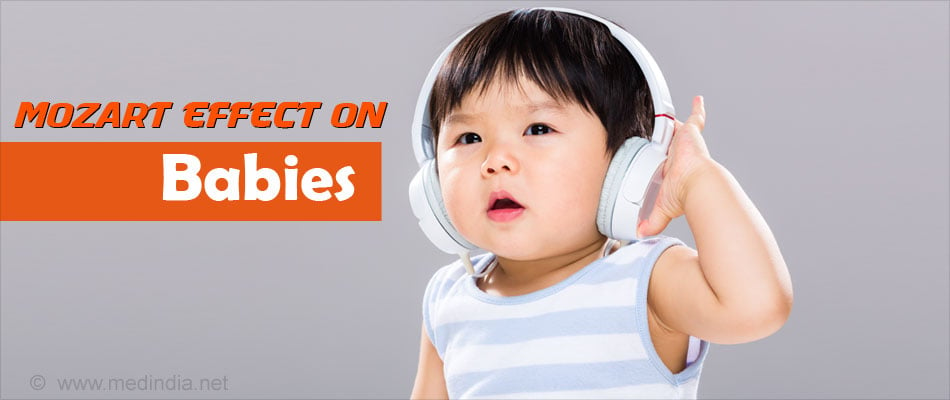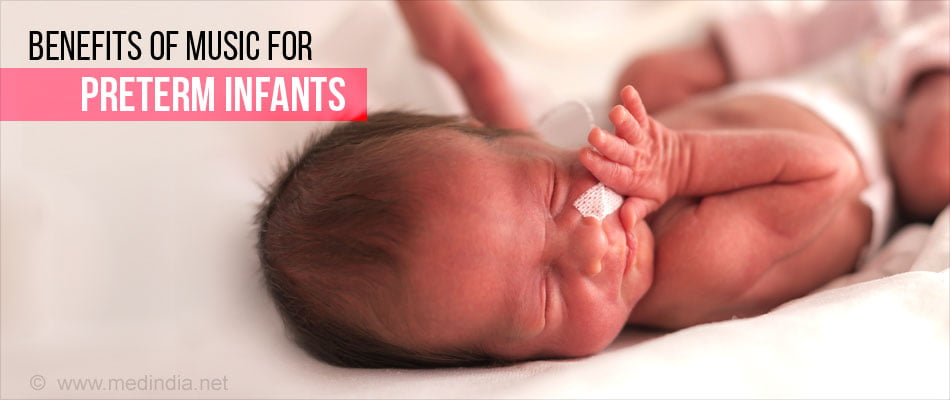- Listening to Mozart enhances spatial-temporal reasoning: towards a europhysiological basis. - (http://www.ncbi.nlm.nih.gov/pubmed/7731551)
- Effect of Music by Mozart on Energy Expenditure in Growing Preterm Infants - (http://pediatrics.aappublications.org/content/125/1/e24.long)
- The Effects of Music Therapy on Vital Signs, Feeding, and Sleep in Premature Infants - (http://pediatrics.aappublications.org/content/131/5/902)
- The Mozart effect - (http://www.ncbi.nlm.nih.gov/pmc/articles/pmc1281386/pdf/0940170.pdf)
- Mozart Effect: The effect of music on premature babies - (http://www.child-psych.org/2010/01/mozart-effect-the-effect-of-music-on-premature-babies.html)
- American Association for the Advancement of Science (AAAS). 1998. "Mozart for the Masses." Daily InScight. 20 January 1998.
Classical Music Therapy for Babies - Mozart Effect
The best way to learn is through the powerful force of rhythm." - Wolfgang Amadeus Mozart
Does “Mozart Music” make your baby smarter? The answer is probably “Yes”.
The term “Mozart Effect” which was first coined by Alfred A. Tomatis who used Mozart's music as the listening stimulus in his work attempting to cure a variety of disorders.

Mozart Effect refers to the phenomenon of increased spatial abilities after listening to the musician’s compositions. Wolfgang Amadeus Mozart was a German prolific and influential music composer of the Classical era. Many studies evidence that if babies listen to music composed by Mozart then they can become more intelligent. Mozart baby music may induce a short-term improvement on the performance of mental tasks known as “spatial-temporal reasoning”. However, subsequent research also suggests that the “Mozart Effect” may be an artifactual outcome of mood arousal.
“Mozart” and Social Media
The initial study by Rauscher, Shaw, & Ky, in 1993 received widespread attention from the social media. The idea that listening to Mozart might increase intelligence quotient (IQ)scores sparked the development of many "educational" books and classical music products. Eventually, thousands of parents started playing Mozart to their children. It has also been reported that in 1998 Zell Miller, the Governor of the state of Georgia (US), even asked for money to be fixed in the state budget for CDs that have music for baby in womb and newborn babies. Moreover, a quick Internet search will reveal plenty of products to assist you in the task. There are also the books to help you to enjoy the Mozart’s music benefits.
Mozart Effect and Growing Preterm Infants
Preterm infants are often kept with more care and considered to have less weight or growth as compared to full-terms pregnancy infants. So, with this perspective a randomized clinical trial with crossover design was conducted in 20 healthy, appropriate-weight-for-gestational-age, gavage-fed preterm infants. Infants were randomly exposed to a 30-minute period of Mozart music or no music on two consecutive days. Their metabolic measurements were performed by indirect calorimetry. The rate of weight gain in preterm infants who are exposed to music was found to improve. So, from the findings it can be concluded that Mozart reduces Resting Energy Expenditure (REE) in the development of healthy preterm infants. Research at Brigham Young University suggests that music has a positive impact and can even promote calmness in babies.

Classical Music and your Baby’s Brain
Brain is considered to be the most mysterious and complex object known to man. And, when it comes to increasing a baby’s brain power. people are more than interested to know the ways how to boost the baby’s IQ. While if you talk about a newborn’s brain, it is only 25 percent of its adult weight, by age 3, it grows and builds its pathways and connections, called synapses. According to Dr. Diane Bales, Ph.D., author of "Building Baby's Brain”, the synapses used for classical music are similar to those that are used for spatial and temporal reasoning. Rauscher, in 1998 suggested that if music acts as a sort of “pre-language” of the brain, certain kinds of music (such as Mozart’s) is likely to facilitate brain function, even on a short-term basis. The results of the experiment explain the higher scores on spatial-temporal tasks by stating that such music causes “short-term causal enhancement of pattern development”. Listening to classical music may soothe your baby’s ears. Music for kids offers numerous benefits that could alleviate physical and health problems. As you know that the brain has two lobes, the studies show that music involves both hemispheres of the brain. Its creativity and emotion is found to engage the right lobe, while rhythm and pitch engage the left one. So, notions of Mozart music work here, the child who receives musical exposure at a young age more efficiently develops the bundle of nerves that connects those two halves. One of the lead researchers in the original U.C. Irvine study believes that listening to a Mozart sonata can activate the brain to tackle mathematical tasks. In another study, performed by John Hughes, a neurologist at the University of Illinois Medical Center in Chicago, reported that Mozart’s compositions triggered the strongest response in the brain. The effect on brain and its wave patterns was 2-3 times more compared to other popular tunes.
Prenatal Music Exposure
Music therapy during pregnancy also proves to be beneficial. The elements of music such as rhythm intervention & range may affect physiologic function like heart and respiratory rates, activity levels and developmental functions. Music also decreases the parental stress perception. Early exposure to music increases abilities in several other areas, including math and language. Studies show that prenatal music exposure induces long-term neural effects. The approach considered was to use the brain's event-related potentials (ERPs). It provides more specific information on the neural correlation of the types and features of sounds the fetuses can learn. During the last trimester of pregnancy, the mothers in the learning group were asked to play the ‘Twinkle twinkle little star’ melody 5 times per week. After birth and again at the age of 4 months, the modified melody with some of the notes changed was played for the infants. While at the same time, ERPs to unchanged and changed notes were recorded. The results showed that extensive prenatal exposure to a melody induces long term neural representations and prolonged periods of quiet–alert states. Even more the infants can categorize auditory stimuli, such as recognizing two or more stimuli that are different.

Conclusion
For centuries, the science of mind what we call as ‘Psychology’ is studied differently and independently from the science of brain ‘Neuroscience’. Psychologists are mainly concerned with our mental capacities - how we learn, or think while Neuroscientists continue with their studies for brain development and its functioning. Thanks to the musical elements which stimulate a realistic and meaningful environment. Babies who listen to Mozart Music can develop positive attitudes, self-perceptions and cognitive skills.





